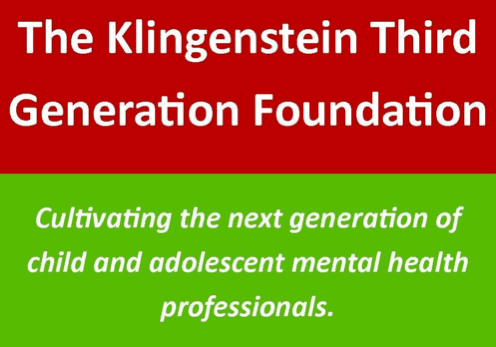Our research is generously funded by the National Institute of Mental Health, the Klingenstein Third Generation Foundation, and the Brain and Behavior Research Foundation.
Below are a few of our current research programs.

The Better Sleep Study
Despite receiving current first-line treatments, youth with Major Depressive Disorder (MDD) remain substantially symptomatic. 60-81% of adolescents suffering from MDD also have a behavioral predilection for later sleep and wake timing. This predilection is associated with increased MDD severity, poor antidepressant response, recurrent MDD episodes, and increased suicidality. For the majority of these adolescents, there is a short difference between the onset of their melatonin production in the evening and their average wake time. In previous work, we identified a cognitive behavioral sleep treatment that lengthened this difference, thereby improving youth depression trajectories for up to one year. To confirm the efficacy of this treatment, we propose a randomized controlled clinical trial. 200 adolescents will be enrolled and randomly assigned to receive 8 weeks of the sleep treatment condition or another control intervention known to improve sleep. If successful, this study will provide a low stigma, safe, data-driven approach towards ameliorating depressive symptoms in an underserved and vulnerable group. Namely, youth struggling with both depression and poor sleep health. Furthermore, the study would introduce a novel target for the development of modern antidepressant therapies.

Reducing Risk: A Comprehensive mHealth Sleep Health Intervention For Adolescents At Risk For Depression And Anxiety Disorders
The prevalence, morbidity, and mortality associated with depression and anxiety disorders in adolescence underscores the critical need to develop novel and more effective prevention strategies that target modifiable risk factors for those adolescents at highest risk. The goal of the proposed project is to test a mobile and internet accessible adaptation of an evidence based sleep intervention and test its efficacy in a sample of adolescents at risk for developing depression and anxiety disorders; the proposed project aims to (a) improve sleep health, (b) determine whether the intervention improves the severity of depression and anxiety symptoms, and a known biological marker of risk for depression and anxiety disorders, cortisol reactivity and recovery in response to a stress exposure, and (c) elucidate target mechanisms underlying the effect of poor sleep health on symptoms of depression and anxiety, and cortisol measures.

SweetDreams Sleep Study for Children with Autism
Sleep problems are one of the most common concurrent clinical disorders among children with Autism Spectrum Disorder. Sleep problems interfere with developmental progression, exacerbate problems in daily adaptive function, and are associated with higher levels of caregiver stress. Behavioral sleep treatments are known to improve sleep among preschool aged children, but access to these treatments is limited by the small number of providers with expertise. This study aims to acquire preliminary data on the feasibility and effectiveness of an mHealth intervention (SweetDreams) for improving access to effective sleep health care for preschool-aged children with Autism Spectrum Disorder.
Improving Access to Care: Testing an Integrated Care Mobile Health Intervention to Improve Sleep and Mental Health in Adolescents
Sleep problems among adolescents are at epidemic levels and are associated with severe mental health problems. Access to existing effective and safe behavioral sleep treatments is poor and often nonexistent. This study aims to improve access to behavioral sleep interventions through primary care, a setting where most youths have access to care, with the overall aim of improving mental health. Specifically, we propose to adapt and evaluate a sleep intervention with demonstrated efficacy for improving sleep and mental health outcomes in youth, for online and mobile device delivery.

Sleep, Internalizing Disorders, and Inflammation
The proposed study will be the first to use an experimental design to determine whether improving sleep positively impacts systemic markers of inflammation in a sample of youth at risk for internalizing disorders. The ‘treatment experiment’ (to improve sleep health disturbances) will help unravel the complex interplay of sleep health, inflammation (an important biological marker of risk) and internalizing disorders symptoms. This research is highly innovative in providing a framework for internalizing disorders prevention in youths, with the examination of an important biological risk factors (i.e., inflammatory biology) to inform understanding of the pathways hypothesized to contribute to internalizing disorders risk.
